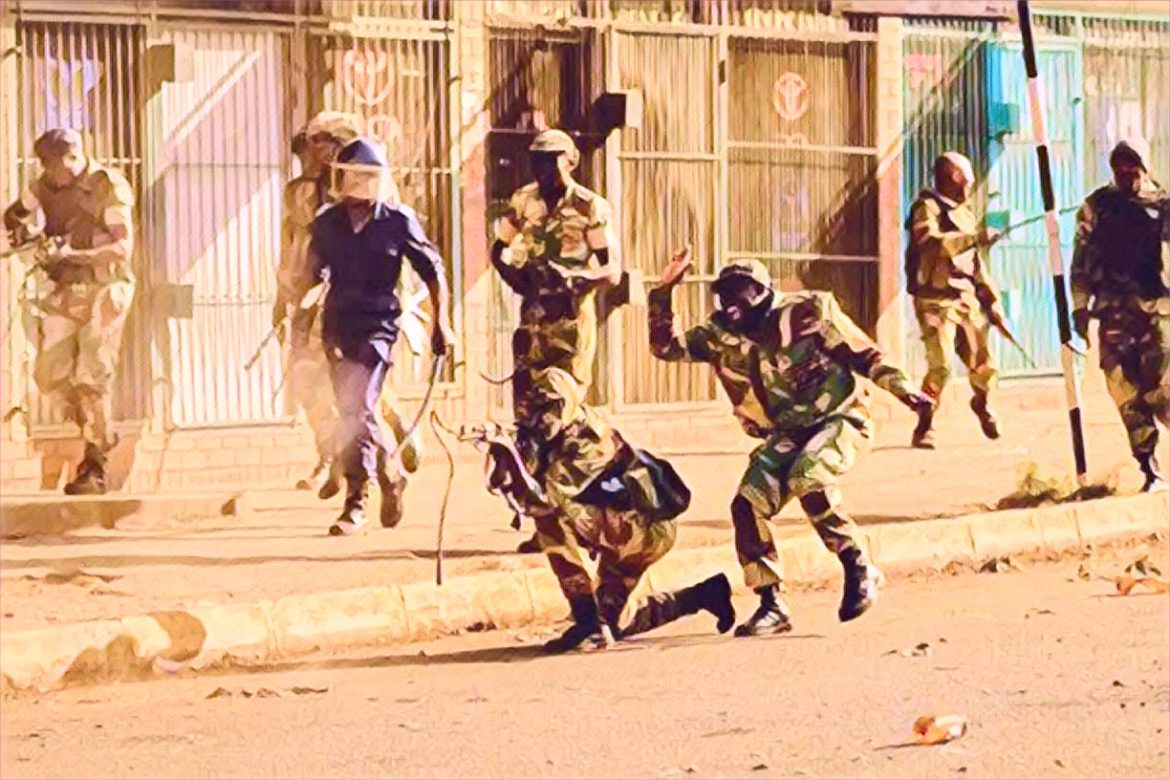In a landmark ruling, the Zimbabwe National Army (ZNA) has been ordered to pay US$29,182 in compensation to Felix Mafondokoto, a civilian who was shot during the 2019 fuel price hike protests. This case marks a significant judgment concerning state accountability and the use of force against civilians.
The protests, which erupted following a sudden 150% hike in fuel prices, prompted widespread unrest across Zimbabwe, leading President Emmerson Mnangagwa to abruptly terminate his international tour to address the escalating violence at home. The president was visiting countries including Russia, Belarus, Kazakhstan, and Azerbaijan, and was scheduled to attend the World Economic Forum in Davos, Switzerland.
As the country grappled with these protests, the army was deployed to quell the unrest. According to court documents, on January 15, 2019, Mafondokoto was accompanying a friend when an incident involving six soldiers occurred. These soldiers, having disembarked from their vehicles, began indiscriminately attacking civilians and firing their weapons.
During this assault, one soldier allegedly poked Mafondokoto with a rifle which accidentally discharged, hitting him in the right backside. The wounded Mafondokoto fell into a ditch and was heavily bleeding. Passersby intervened, rescuing him and transporting him to St Mary’s clinic. Attempts by soldiers to remove him from the clinic were thwarted by a protective crowd of Chitungwiza residents. He was later transferred to Chitungwiza Hospital and subsequently to Belvedere Medical Centre for further treatment.
Represented by the Zimbabwe Lawyers for Human Rights, Mafondokoto initiated legal action against the Defence Minister and the army commander, seeking compensation for pain, suffering, medical expenses, and loss of earnings totaling US$49,182. His legal claim detailed US$17,000 for pain and suffering, US$3,182.15 for medical expenses, and US$12,000 for lost wages.
The defense, presented by Colonel Whatmore Ziweni, Chief Operations Officer of the army, contended that soldiers were not deployed on the day in question. However, Harare magistrate Mbonisi Ndlovu found compelling evidence to the contrary, identifying the shooter as a member of the ZNA based on uniform and weaponry descriptions consistent with military personnel.
Magistrate Ndlovu ruled that the incident was an “accidental discharge” by a soldier and declared the defendants vicariously liable for their officer’s negligent conduct. He acknowledged the permanent injuries suffered by Mafondokoto, noting that not all bullet fragments could be successfully removed and that the victim continues to experience pain, significantly affecting his ability to work.
The court awarded Mafondokoto US$3,182 for special damages, US$10,000 for general damages relating to pain and suffering, US$9,000 for contumelia—a term referring to personal humiliation or indignity—and US$7,000 for loss of earnings. This ruling underscores the ongoing issues of military engagement in civilian matters and the critical need for reforms in handling national protests.
This case is significant as it not only emphasizes the impact of military force but also establishes a standard for the treatment of civilians and the accountability of state actors in Zimbabwe. As the country continues to navigate its complex socio-political landscape, this judgment serves as a reminder of the delicate balance between maintaining order and respecting human rights.
Source: Newsday


